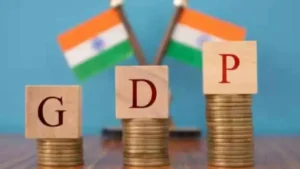In a first, the Reserve Bank of India (RBI) has cancelled the auction of 10-year green bonds as traders refused to pay the greenium, the premium for sustainability impact. This move highlights the market’s reluctance to invest at the desired yields, leading to significant financial implications.
Market Reaction to Green Bond Auction
The RBI had planned to issue green bonds worth Rs 12,000 crore in the first half of the financial year, divided into two tranches of Rs 6,000 crore each. However, the bids ranged between 7% and 7.06% yield, which was above the RBI’s acceptable rate, as the benchmark bond yield was trading at 6.99%. Consequently, the auction was cancelled.
Impact on Currency and Yields
Following the cancellation, the yield on the benchmark 10-year government bond settled at 6.98% on Friday. The rupee also declined to a two-week low of 83.47 against the dollar due to month-end dollar demand from oil companies and election-related market jitters, despite RBI intervention through dollar sales to curb further depreciation.
Election Results and Market Volatility
With the general election results imminent, the rupee experienced volatility, moving between 83.04 and 83.47 against the dollar during the week. This was despite positive economic indicators, such as an upgrade in India’s outlook by S&P and a substantial $2.8 billion inflow from MSCI rebalancing, which was offset by dollar demand from various sectors.
Analyst Insights
Market experts suggest the RBI might reattempt the auction post-election results when market conditions may stabilize. The uncertainty and close competition indicated by market trends have contributed to the currency’s near all-time low levels, highlighting the complex interplay between political events and financial markets.




 ICRA Projects India’s GDP Growth to Mode...
ICRA Projects India’s GDP Growth to Mode...
 India’s GDP May Hit 8.1% in Q3FY26: SBI ...
India’s GDP May Hit 8.1% in Q3FY26: SBI ...
 Forex Reserves of India Hit Record High ...
Forex Reserves of India Hit Record High ...








